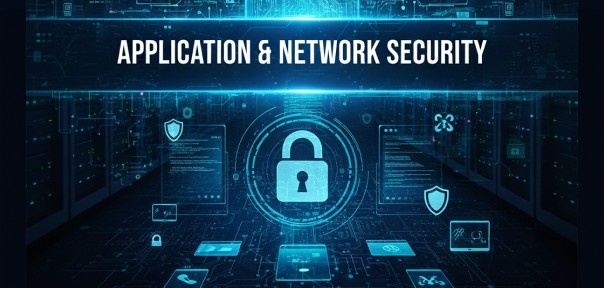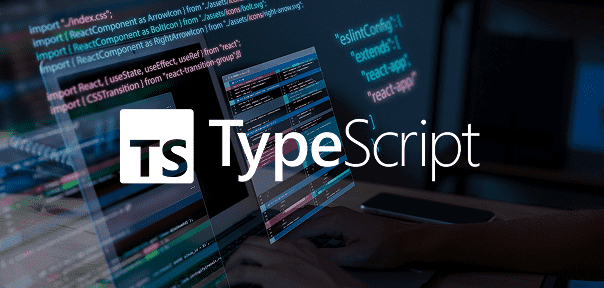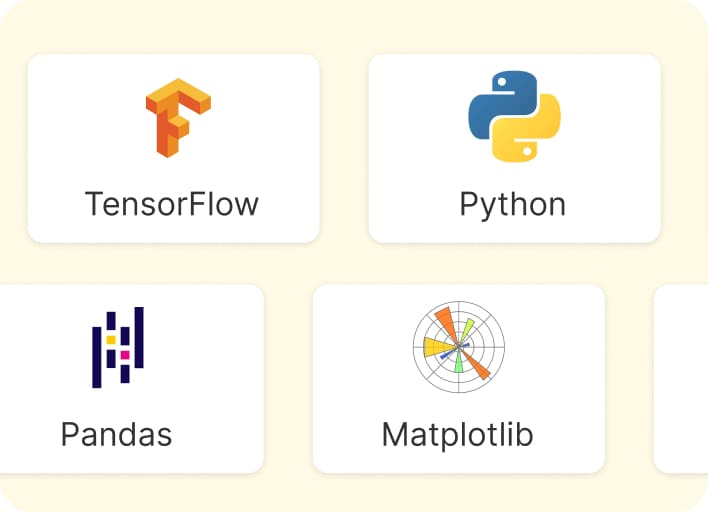- Great Learning
- Free Courses
- Cyber Security
Free Advanced Cyber Security Course
Advanced Cyber Security - Threats and Governance
Learn solutions for cyber-attacks with Advanced Cyber Security-Threats and Governance free course
Advanced Cyber Security - Threats and Governance
70.8K+ learners enrolled so far
Stand out with an industry-recognized certificate
10,000+ certificates claimed, get yours today!
Get noticed by top recruiters
Share on professional channels
Globally recognised
Land your dream job

Skills you will gain
Attacks
Vulnerabilities
Policy
Frameworks
Key Highlights
Get free course content
Master in-demand skills & tools
Test your skills with quizzes
About this course
The threats related to Cyber Security are growing in frequency and complexity. These Cyber Security threats are taking the information security industry on a toll. In the last few years, we have witnessed the most horrific cases of cybercrimes as cyber attackers are getting smarter day by day. As the threat of compromising the data is increasing, the need for Cyber Security professionals is also increasing. The goal of this course is to strengthen the knowledge of current enthusiasts in the field. You will be introduced to some types of Cyber Security threats, popular attacks, vulnerabilities, landscape, policy, frameworks, and certificates This free course on Cyber Security will provide you a certificate on the completion of the course.
Launch your career in Cyber Security with Great Learning’s Cyber Security Certificate program and learn from the world-class leaders in the domain. The program has collaborated with the Stanford Centre for Professional Development that provides a world-class standard of learning. Explore our best online cybersecurity courses designed for fresh graduates and working professionals.
Course outline
What are Threats?
This module will cover the actual definition of threats, their types, and causes. Next, you will learn about some potential threats to our systems and the people behind them.
GitHub DDos Attack
What are Vulnerabilities?
In this module, the tutor will brief you on the definition of vulnerabilities and their types. Later, you will learn about the term vulnerability analysis, which is used to analyze the potential weaknesses and loopholes in the system.
Vulnerability Categorization
SQL Injection Anatomy
Cross Site Scripting Anatomy
WordPress Plugin SQL Vulnerability
Kevin Mitnik's Website's XSS Vulnerability
Flickr XSRF Vulnerability
Password Security
Cyber Security Landscape
Cyber security Policy Management
Cyber Security Policy Ecosystem
Cyber Security Policy Management Design
Cyber Security FrameWorks
ISMS Environment
Frameworks and ISO27001 Standard
IS Policy Components
ISMS Certification - ISO 27001 Certification Process
Get access to the complete curriculum once you enroll in the course
Stand out with an industry-recognized certificate
10,000+ certificates claimed, get yours today!
Get noticed by top recruiters
Share on professional channels
Globally recognised
Land your dream job

Advanced Cyber Security - Threats and Governance

2.25 Hours
Beginner
70.8K+ learners enrolled so far
Get free course content
Master in-demand skills & tools
Test your skills with quizzes
Level up with advanced skills & become job ready with Pro+
Subscribe to Pro+ today to build skills with 50+ Pro courses and prep for jobs with advanced AI tools.
.png)

Practice exercises

Guided Projects

AI Resume Builder

AI mock interviews
Get course + certificate with Pro+ subscription
Learner reviews of the Free Courses





5.0



5.0


5.0
Frequently Asked Questions
Will I receive a certificate upon completing this free course?
Is this course free?
What is cyber governance?
Cyber governance refers to the system using which an organization assesses and manages cyber threats, determines security strategies, and makes informed decisions using available resources. Think of it as a sub-function of organizational governance that relies heavily on a security governance framework and the availability of resources to mitigate cyber risks. Since every business process is unique, there is no one-size-fits-all framework for cyber governance. A typical framework in any organization includes
-
Review of potential risks
-
Escalation/de-escalation of risks
-
Involvement of the Board in mitigating risk decisions
-
Ensuring that the framework works seamlessly
-
Structuring cyber security system
-
Code of practices are implemented properly
What are the major components of cyber security governance?
Some of the key components of developing robust cyber security governance include :
-
Governance -Governance refers to the system by which an organization controls and manages IT security. Understanding how cyber security risks may impact your business goals and objectives establishes the roadmap to determining IT operations. This paves the way to designing a robust governance structure that helps in improving the overall cyber risk management strategy. Once an organization has a clear scope and appropriate resources, individuals or dedicated teams are assigned to take action and make informed decisions. Developing a strategic action plan, policies and establishing key performance indicators (KPIs) fall under governance.
-
Technology -Since business operations differ depending on the size, location, and scope of the business, so does the technological requirement to sustain business operations and growth. The organization must ensure basic technological infrastructure that helps protect its assets to withstand cyber threats. To mitigate foreseeable cyber threats and ensure security, organizations may also allocate funds or resources to procure sufficient technological tools. This may include computers, networks, the cloud, and the physical environment for data protection. Depending on the technical aspects of cybersecurity, organizations may conduct routine network penetration tests and security assessments of physical components to deal with cyber risks.
-
Operations - Operations refer to how an organization brings together governance and technology in action. Having a standardized process in place ensures the quality and consistency of the risk management approach. On the contrary, inconsistent and ineffective governance plans will eventually lead to pitfalls and security breaches. In the same manner, outdated technological tools will lead to compromises and cyber-attacks even if a robust governance plan is put in place. Therefore, an organization needs to enforce accountability and consistency in its operational process to meet compliance across all levels. For instance, if an organization possesses great technological tools for cyber risks detection but an inconsistent incident response plan, then it will still be at risk. Implementing risk and vulnerability management and awareness programs will help address existing and future risks within that organization.
What are security governance principles?
There are six core security governance principles. These include -
-
The first principle is to establish information security governance as per the organization’s structure and objectives. The management should ensure that information security protocols should be well integrated with the latest information technology to establish accountability within the organization.
-
The second principle dictates adopting a strategic approach based on potential risks. Based on the risk appetite, the resources and budget should be allocated. This also prevents financial losses in the future and reduces liability risks.
-
As per the third principle, investments should be intended to fulfill a business or organizational objectives. The capital and expenditure should lead to regulatory compliance.
-
The fourth principle says that there should be conformity in the internal and external requirements. External requirements include legislation, certifications, etc., and internal requirements include risk management approaches based on organizational objectives.
-
According to the fifth principle, fostering a positive environment and fulfilling stakeholders’ expectations is crucial.
-
From the governance perspective, it is important to review an organization’s security performance concerning business outcomes. Mandate reviews, monitoring, and audits help enhance business performance.
What are the five goals of information security governance?
The information security governance should fulfill five main goals or outcomes enlisted below :
-
Risk management -One of the main goals of information security governance is risk management. This includes identification, management, reduction, and prevention of potential risks and their ill impact on organizational resources.
-
Resource management -The objective of following a strategic risk management approach is to align with budget and available resources without expending extra.
-
Policy alignment -Alignment of security policies with organizational objectives helps achieve optimum value.
-
Performance measurement -To ensure that organizational goals and objectives are met, it is required to compare performance using set metrics.
-
Deliver value - All the investments related to information security governance should be aimed at delivering value while keeping in mind the various needs of stakeholders.
Can I learn cyber governance for free?
Yes, you can learn cyber governance for free by simply enrolling yourself into one or more of the courses offered at Great Learning. These are self-paced and beginner-friendly courses that will equip you with the required skill set to excel in the field of cyber security.
Become a Skilled Professional with Pro Courses
Gain work-ready skills with guided projects, top faculty and AI tools, all at an affordable price.


View Course

Included with Pro+ Subscription

View Course

Included with Pro+ Subscription

View Course

Included with Pro+ Subscription


View Course

Included with Pro+ Subscription

View Course

Included with Pro+ Subscription


View Course

Included with Pro+ Subscription

View Course

Included with Pro+ Subscription
.jpg)
View Course

Included with Pro+ Subscription


View Course

Included with Pro+ Subscription


View Course

Included with Pro+ Subscription




View Course

Included with Pro+ Subscription


View Course

Included with Pro+ Subscription


View Course

Included with Pro+ Subscription
.png)
.png)
View Course

Included with Pro+ Subscription
.png)
View Course

Included with Pro+ Subscription
.png)
View Course

Included with Pro+ Subscription

View Course

Included with Pro+ Subscription

View Course

Included with Pro+ Subscription

View Course

Included with Pro+ Subscription
.jpg)
View Course

Included with Pro+ Subscription
.png)
View Course

Included with Pro+ Subscription

View Course

Included with Pro+ Subscription
.png)
View Course

Included with Pro+ Subscription
.png)
View Course

Included with Pro+ Subscription

View Course

Included with Pro+ Subscription
.jpeg)
View Course

Included with Pro+ Subscription

View Course

Included with Pro+ Subscription
.png)
View Course

Included with Pro+ Subscription
.png)
View Course

Included with Pro+ Subscription
.png)
View Course

Included with Pro+ Subscription

View Course

Included with Pro+ Subscription
.png)
View Course

Included with Pro+ Subscription
.png)
View Course

Included with Pro+ Subscription
.png)
View Course

Included with Pro+ Subscription


View Course

Included with Pro+ Subscription

View Course

Included with Pro+ Subscription

View Course

Included with Pro+ Subscription
.jpg)
View Course

Included with Pro+ Subscription

View Course

Included with Pro+ Subscription

View Course

Included with Pro+ Subscription







View Course

Included with Pro+ Subscription

View Course

Included with Pro+ Subscription
.png)

.jpg)

.jpg)



View Course

Included with Pro+ Subscription

View Course

Included with Pro+ Subscription

View Course

Included with Pro+ Subscription

View Course

Included with Pro+ Subscription

View Course

Included with Pro+ Subscription


View Course

Included with Pro+ Subscription
.png)
View Course

Included with Pro+ Subscription
Popular


View Course

Included with Pro+ Subscription

View Course

Included with Pro+ Subscription

View Course

Included with Pro+ Subscription


View Course

Included with Pro+ Subscription

View Course

Included with Pro+ Subscription


View Course

Included with Pro+ Subscription

View Course

Included with Pro+ Subscription
.jpg)
View Course

Included with Pro+ Subscription
Microsoft Courses


View Course

Included with Pro+ Subscription


View Course

Included with Pro+ Subscription




View Course

Included with Pro+ Subscription


View Course

Included with Pro+ Subscription


View Course

Included with Pro+ Subscription
Cyber Security
.png)
.png)
View Course

Included with Pro+ Subscription
.png)
View Course

Included with Pro+ Subscription
.png)
View Course

Included with Pro+ Subscription

View Course

Included with Pro+ Subscription

View Course

Included with Pro+ Subscription
Management

View Course

Included with Pro+ Subscription
.jpg)
View Course

Included with Pro+ Subscription
.png)
View Course

Included with Pro+ Subscription

View Course

Included with Pro+ Subscription
.png)
View Course

Included with Pro+ Subscription
.png)
View Course

Included with Pro+ Subscription

View Course

Included with Pro+ Subscription
.jpeg)
View Course

Included with Pro+ Subscription
.jpg)
View Course

Included with Pro+ Subscription
.jpg)
View Course

Included with Pro+ Subscription
.png)
View Course

Included with Pro+ Subscription

View Course

Included with Pro+ Subscription
 (1).jpg)
View Course

Included with Pro+ Subscription
.png)
View Course

Included with Pro+ Subscription
.png)
View Course

Included with Pro+ Subscription

View Course

Included with Pro+ Subscription
.png)
View Course

Included with Pro+ Subscription
IT & Software

View Course

Included with Pro+ Subscription
.png)
View Course

Included with Pro+ Subscription
.png)
View Course

Included with Pro+ Subscription
.png)
View Course

Included with Pro+ Subscription

View Course

Included with Pro+ Subscription
.png)
View Course

Included with Pro+ Subscription
.png)
View Course

Included with Pro+ Subscription
.png)
View Course

Included with Pro+ Subscription


View Course

Included with Pro+ Subscription
.jpg)
View Course

Included with Pro+ Subscription

View Course

Included with Pro+ Subscription

View Course

Included with Pro+ Subscription

View Course

Included with Pro+ Subscription

View Course

Included with Pro+ Subscription
.png)
View Course

Included with Pro+ Subscription


View Course

Included with Pro+ Subscription

View Course

Included with Pro+ Subscription


View Course

Included with Pro+ Subscription

View Course

Included with Pro+ Subscription

View Course

Included with Pro+ Subscription

View Course

Included with Pro+ Subscription

View Course

Included with Pro+ Subscription
 (1).png)
View Course

Included with Pro+ Subscription

View Course

Included with Pro+ Subscription
AI & Generative AI


View Course

Included with Pro+ Subscription

View Course

Included with Pro+ Subscription

View Course

Included with Pro+ Subscription
.jpg)
View Course

Included with Pro+ Subscription

View Course

Included with Pro+ Subscription

View Course

Included with Pro+ Subscription


Cloud Computing





View Course

Included with Pro+ Subscription

View Course

Included with Pro+ Subscription
.png)

.jpg)

.jpg)



View Course

Included with Pro+ Subscription
.png)
View Course

Included with Pro+ Subscription




View Course

Included with Pro+ Subscription


View Course

Included with Pro+ Subscription
.png)

View Course

Included with Pro+ Subscription
.png)

View Course

Included with Pro+ Subscription
Data Science & ML

View Course

Included with Pro+ Subscription

View Course

Included with Pro+ Subscription

View Course

Included with Pro+ Subscription

View Course

Included with Pro+ Subscription


View Course

Included with Pro+ Subscription
.png)
View Course

Included with Pro+ Subscription
Subscribe to Academy Pro+ & get exclusive features
$29/month
No credit card required

Learn from 40+ Pro courses

Access 500+ certificates for free

700+ Practice exercises & guided projects

Prep with AI mock interviews & resume builder
Recommended Free Cybersecurity courses




Similar courses you might like



.jpg)
Related Cyber Security Courses
-
Personalized Recommendations
Placement assistance
Personalized mentorship
Detailed curriculum
Learn from world-class faculties
50% Average salary hike -


McCombs School of Business at The University of Texas at Austin
Post Graduate Program in Cyber Security20 weeks · Online
Know More
-


Great Lakes Executive Learning
Post Graduate Program in Cyber Security6 months · Online
Know More
-


Johns Hopkins University
Professional Certificate in Cybersecurity: IT and Data Security in the Age of AI14 Weeks · online
Know More














